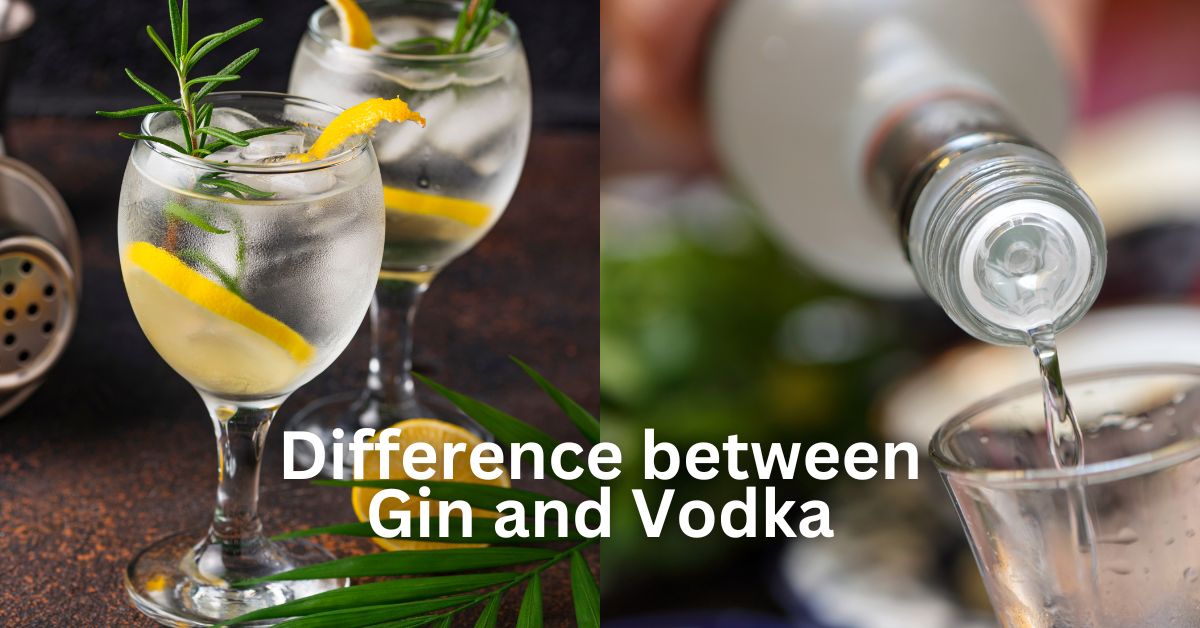The most basic difference between gin and vodka is their taste. Amongst the two super popular alcoholic beverages, Gin has an aftertaste that represents herbal and pine notes, whereas Vodka exhibits a rather tasteless and odorless composition. But this is not everything.
To know more about their differential factors, keep on reading until the end.
What is Gin?
Initially developed as a medicinal drink, Gin is basically a neutral spirit that is often re-distilled with natural agents to produce a sweet aftertaste. This could include different kinds of berries or other flavoring agents, although juniper berries are the most commonly used ingredient in most gins.
And while they generally have an ABV level below 40, they are still a popular drink almost all over the world. Given their unique sweet taste, this drink is mostly preferred by casual alcohol drinkers and teenagers, although some adults also love this tangy taste.
Moreover, depending upon the ingredients and level of distillation, gin can be of various types. Some of these include: London dry gin, Plymouth gin, old tom gin, navy strength gin, and a wide variety of gin liqueurs. All of these have variable sweet and alcohol levels, allowing individuals to better appreciate the sweet, starchy aftertaste, while slowly getting drunk.
What is Vodka?
A competitor of Gin, Vodka is yet another famous neutral spirit. However, unlike the former competitor, this alcoholic beverage has no odor, color and aftertaste. This is mostly due to the fact that Vodka is fermented and distilled from potatoes and starches, which have no distinct flavor to them. But, the aftertaste also largely depends upon the ABV level and the region from where the drink was produced. So, although unusual, some vodkas may exhibit a certain type of taste when drunk.
Now coming to its origin history, the first official records of Vodka date back to the 14th Century, where the drink was typically used as a medicinal drink. But with the passing of time, this spirit rapidly gained the favor of people, making itself known as one of the most fond alcoholic beverages.
Furthermore, their tasteless and odorless composition makes them the best option for cocktails and other flavorful mixers. And even though, this subtle difference between gin and vodka may not seem much in the initial phase, they bring about a huge difference in their final taste.
Difference between Gin and Vodka
Like we discussed above, both Gin and Vodka are neutral spirits with separate distillation processes. However apart from this basic difference, there are a few other factors that every alcohol lover should know. These include:
Flavor
Depending upon their primary ingredient, the next major difference between gin and vodka is their flavor. So, gin is generally sweet and leaves a similar aftertaste, thanks to juniper berries and other artificial flavors that go into their making.
But, on the other hand, most vodkas are tasteless and odorless as potatoes, grapes, corn and wheat are some of the most profoundly used ingredients for this very drink type. Contrary to berries, these items don’t have any distinct flavor and hence the result.
Serving Style
Now even though Gin is famous for its unique herbal and pine tastes, they unfortunately aren’t the best matches for all kinds of alcohol mixing. If not done properly, the taste of the drinks might clash together, creating a bizarre concoction that no one would want to try.
However, this is where Vodka emerges as the ultimate winner. This drink seamlessly mixes with other alcoholic beverages without creating any taste differences and hence being mostly used for cocktails, martinis, and the G&T.
Temperature
Another advantage of Gin is their ability to be served in almost all temperatures. The complex flavors leave the individual savoring its taste, no matter if the drink is offered chilled or in normal temperature, unlike Vodka which is best consumed chilled. When chilled, Vodka slides into the mouth effortlessly giving a better mouthfeel experience.
To make it more easy to understand, here are a few differences between gin and vodka categorized into a tabular form.
| FACTORS | GIN | VODKA |
| Origin | In the 17th Century Holland | The first official records of Vodka can be traced back to 14th Century Russia |
| Invented as | Medicinal drink | Medicinal drink |
| Type of Spirit | Neutral spirit with a unique herbal and pine aftertaste | Neutral spirit with no distinct odor and taste, although some vodkas may have a little aftertaste based upon their alcohol level and region of production |
| ABV Level | 37.5-39.5% | 40-40.5% |
| Serving Style | Can be served in any temperature | Best served when chilled |
| Mixer Quality | Needs to be carefully mixed with other alcoholic beverages | Doesn’t risk causing taste imbalances when mixed with other alcoholic drinks |
| Primary Ingredient | Juniper berries, including artificial flavors and preservatives | Potato, Wheat, Corn, Grapes, etc |
| Aftertaste | Sweet and Tangy | No aftertaste |
| Classification | Can be classified as flavored Vodka | No classification possible |
So, this was all about the difference between gin and vodka. For more such interesting topics, subscribe to differencio.com today.







